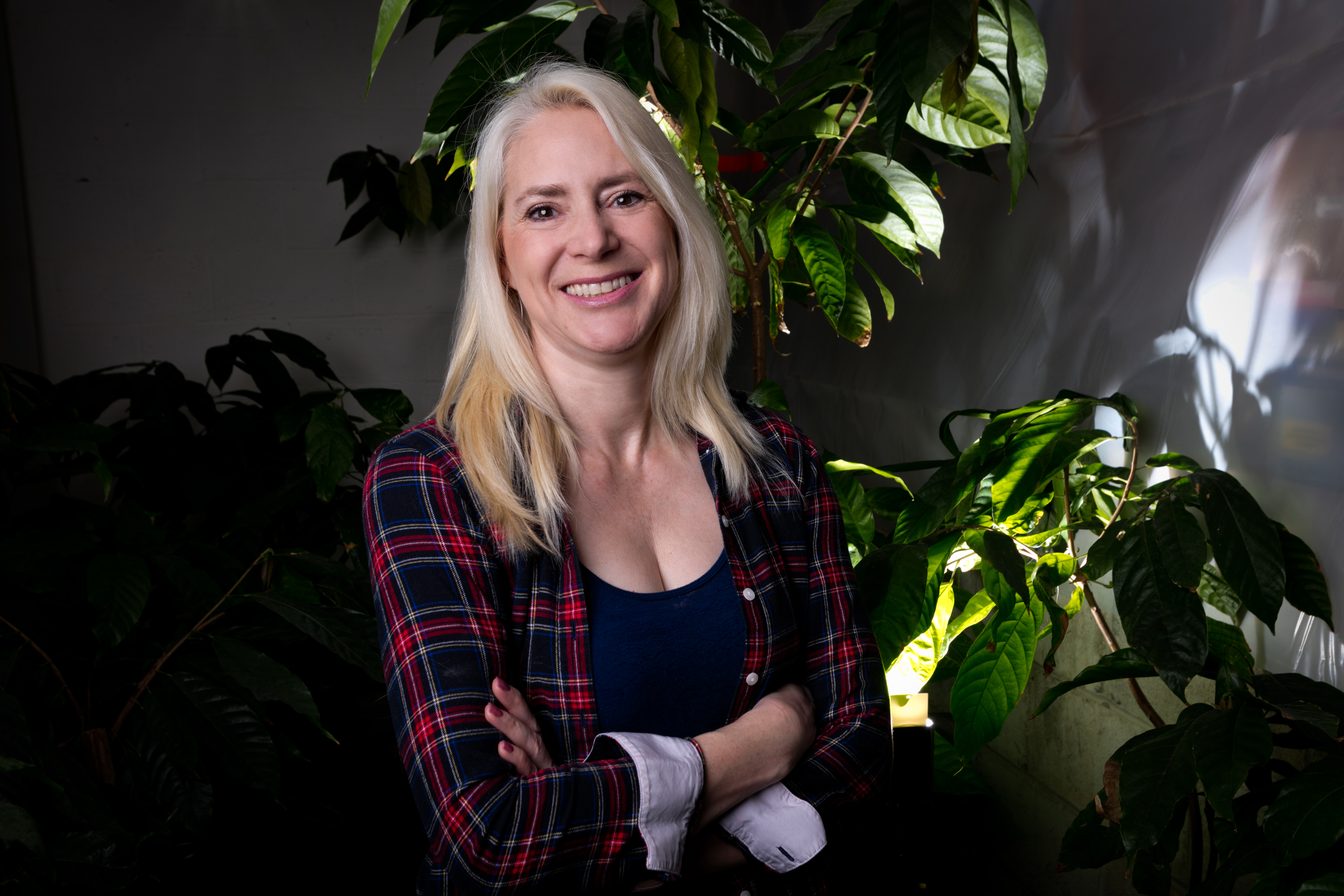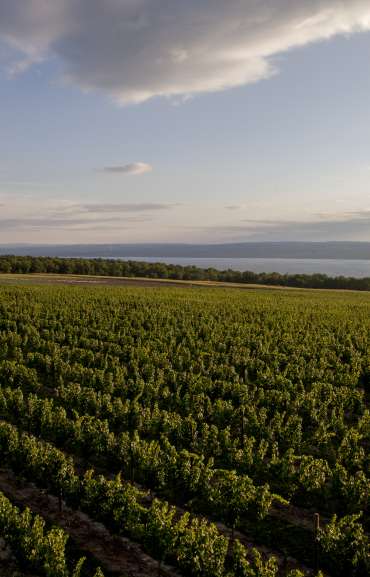Ann Marie Heizmann
Farmer/Farm Advocate

A Fearless Farmer-Advocate
Ann Marie Heizmann isn’t afraid to get her red-polished fingernails a little dirty.
She’s been digging in the soil since she was a young girl, and spent summers on her great aunt’s dairy and crop farm in Oklahoma. She planted her first pumpkins as a teenager on her parent’s poultry farm in New York’s Southern Tier.
Years later, when her husband’s job brought them to Seneca Falls, she started her own farm and continued to plant pumpkins. In 2005, she opened Meadeville Farm Pumpkin Patch. At the time, it was one of the few pumpkin farms in the eastern Finger Lakes.
Heizmann operated the pumpkin farm for more than a decade, growing 50 varieties of the popular crop.
Now, she’s trying something completely new—and innovative.
Heizmann is working with Penn State researchers, and with Tree Global, an international nursery company, to grow cacao trees on her farm, and eventually make local chocolate.
“I’m three years into my test phase and my trees are ready to produce,” Heizmann said. “I’m getting ready to scale up and go to a commercial level with the trees.”
She’s one of the few people in the country to do so. In fact, there are very few working cacao farms in the U.S.
That’s because the trees, native to South America, grow in humid, tropical climates within 20 degrees north and south of the equator. Hawaii, which sits at the edge of that band, is considered to be the only state in the U.S. that can support commercial cacao production.
If Heizmann is successful, she’ll be at the forefront of a groundbreaking development in agriculture.
On her upstate New York farm, the trees must be grown indoors to control for temperature. Heizmann currently has 30 trees planted in her basement, under LED lights, and plans to expand to 250 trees in a separate building on the farm.
“I’m probably one of the only people in the world doing this,” Heizmann said. “That’s why I’m working with the researchers at Penn State. It’s a new idea and we’ll see how it goes. But local chocolate with the region’s wineries goes together nicely.”
From farmer to farmer-advocate
In 2009, Fred Jensen, a local farmer, and Skip Jensen, then a field advisor for the New York Farm Bureau, approached Heizmann to help lead the Seneca County Farm Bureau.
She joined the board that year and was later elected president.
Heizmann was drawn to the position to help bridge the divide between consumer and farmer, and increase awareness and understanding about farming in the community.
“If it doesn’t look like Old MacDonald’s Farm, people think it’s not agriculture,” she said. “Ag has evolved because times have changed. A lot of our work is educating people about what farming looks like today.”
According to the latest Census of Agriculture, Seneca County is home to 516 farms with sales of nearly $91 million. The county is one of the top producers of soybeans, corn, wheat, and beef cattle in the state. It’s also a leading producer of wine.
“Agriculture is the largest economic driver in Seneca County and we have a diversity of farms,” said Heizmann. “Wineries are agriculture, and wineries are the biggest tourism draw in the county. And we have cowboys here. I don’t think many people realize that.”
As president of the Seneca County Farm Bureau, Heizmann is a vocal advocate for farmers’ rights. She travels the county and state, meeting with federal, state and local lawmakers about farm-friendly policies.
She has an ingrained sense of service to others, a trait she inherited from her grandmother and two great aunts.
“My grandmother always stressed that you have to give back, you have to be involved and be active,” Heizmann said. “All three of them were very strong women and very involved in their communities. They taught me to be a strong woman.”
Heizmann has long been active in St. Mary’s Church in Auburn, and in community organizations such as Zonta Club of Geneva and Habitat for Humanity of Seneca County.
In her decade with the Farm Bureau, she has worked with the Waterloo and Seneca Falls Rotary clubs, and the Waterloo and Willard-Ovid Lions clubs, to host the Rural Urban Dinner which raises money for Foodlink in Seneca County.
“It’s a farm-to-plate dinner and all the food is donated by local farms, right down to the flour they use,” Heizmann said.
Helping local farmers also means improving access to locally-grown food.
For a time, the only farmers market in Seneca County was in Seneca Falls. Two years ago, the Farm Bureau worked with Waterloo Rotary to start a farmers market in Waterloo. Last year, Seneca County Cornell Cooperative Extension opened a market in Ovid.
“To support the farms, buy as much local as you can,” Heizmann said.

